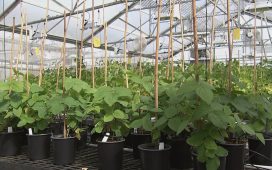Russia has ordered the closure of its huge land border with China, as Moscow scrambles to prevent the deadly coronavirus infection spreading from its southern neighbour.
There have been no confirmed cases of the respiratory illness in Russia but Vladimir Putin’s government is anxious to prevent the virus from crossing a land border that stretches for more than 4,000km. Moscow has already blocked Chinese tour groups from entering the country.
Mikhail Mishustin, Russia’s new prime minister, said the decision to “close the border in the Far East and other measures taken by the government” would be included in a new directive signed on Thursday. “We must do everything to protect our people,” he said.
Russia’s foreign ministry also said it had suspended the issuance of electronic visas for Chinese citizens, who were previously able to use the permits to enter the country in St Petersburg, Kaliningrad and at multiple south Asia crossing points.
The global technology supply chain became the latest casualty of the virus outbreak with Hon Hai Precision Industry, the company that makes the majority of the world’s iPhones and is owned by Taiwan’s Foxconn, suffered its biggest share price fall in almost 20 years.
Japanese electronics parts makers and other tech groups with factories in China were also braced for severe disruption as large parts of the country extended the holiday break into next week.
“The coronavirus creates a more uncertain environment than the trade war . . . and the scale of the impact is bigger than Sars,” said Gary Cheung, a director at Haitong Securities in Hong Kong specialising in industrial technology. The impact would also be greater than the US-China trade war, he added.
The growing disruption to the world’s second-largest economy came as China said 170 people had died and nearly 7,800 cases had been confirmed worldwide. The number infected with the coronavirus was also set to overtake the worldwide total of those who contracted the similar Sars infection 17 years ago. Just over 8,000 people were infected in the Sars outbreak in 2003 that killed 774 people.
In addition to the 7,711 coronavirus cases in China, about 100 infections have been confirmed outside the Chinese mainland, with cases in Hong Kong, Japan, Thailand and Singapore all reaching double digits.
World Health Organization experts were due to meet on Thursday in Geneva to consider declaring the outbreak an international emergency.
Haitong’s Mr Cheung said companies that needed plenty of manpower in China would probably be harder hit, which, apart from labour-intensive Foxconn, included Pegatron, the Taiwanese contract electronics manufacturer.
“Semiconductor manufacturing is heavily automated, whereas companies such as Foxconn and Pegatron rely heavily on labour-intensive assembly which is more exposed,” he said.
Analysts said the most immediate impact would be felt by a cluster of flat-panel display producers in Wuhan, the city at the centre of the outbreak, where fabrication plants owned by China Star, Tianma and BOE were estimated to account for up to 9 per cent of global capacity. The Chinese government has quarantined Wuhan and much of Hubei, the province surrounding it.
But the technology supply chain could also suffer beyond Hubei, as some of China’s largest industrial and manufacturing hubs, including Shanghai, Jiangsu, Zhejiang and Chongqing, also extended the lunar new year break by nearly a week for non-essential businesses. Some 290 of about 800 plants named in Apple’s global supplier list are located in six provinces that have delayed returning to work.
DHL, the logistics group, warned of severe delays in cargo traffic as the Hubei lockdown and other transport restrictions caused congestion. It added that workers would have difficulty returning to their factories after the holidays.
However, it remains unclear how strictly the Chinese government is enforcing those orders. Semiconductor and LCD panel fabrication plants cannot easily stop production without huge losses and therefore usually continue running through the holidays.
Elsewhere in the economy, Luxury hotel W Hong Kong said it had cordoned off a room and sanitised a floor after two guests from Wuhan were confirmed as the city’s latest coronavirus patients. It said it would institute temperature checks for guests.
Hong Kong health authorities also said two patients infected with the virus were taken to hospital by ambulance from the city’s Four Seasons Hotel on Tuesday. They had also visited the Ritz-Carlton.
British Airways has suspended flights to and from mainland China, and Starbucks and Uniqlo have temporarily closed their stores in the country. Ikea China said it had closed all its stores until further notice. Honda, Nissan, PSA and Renault have started flying out non-Chinese workers.
Japan and the US have begun evacuations of foreign nationals from the city of Wuhan, the centre of the outbreak, despite China’s foreign ministry saying that such measures were not necessary.
Three of the 206 Japanese evacuees who returned home from Wuhan on Wednesday tested positive for the virus, according to Japan’s health ministry, although two of them showed no symptoms.
Additional reporting by Robin Harding in Tokyo and Sue-Lin Wong in Shenzhen








